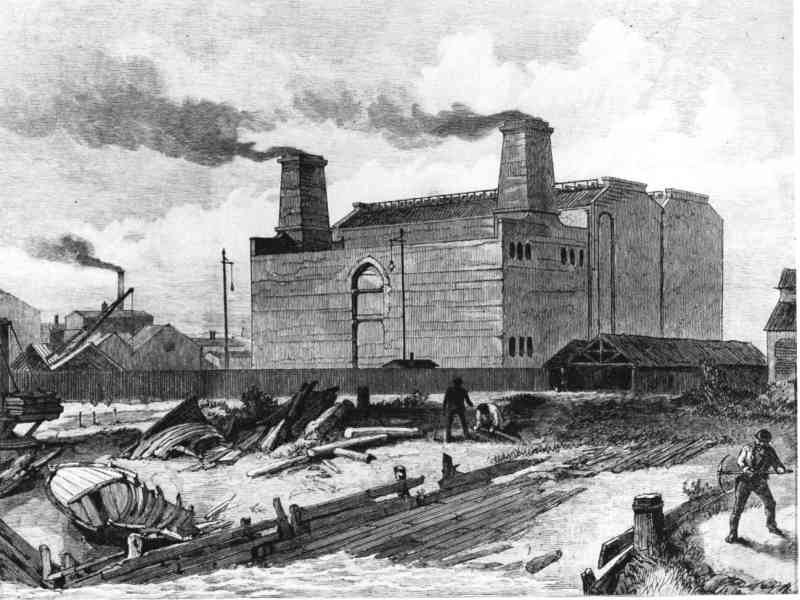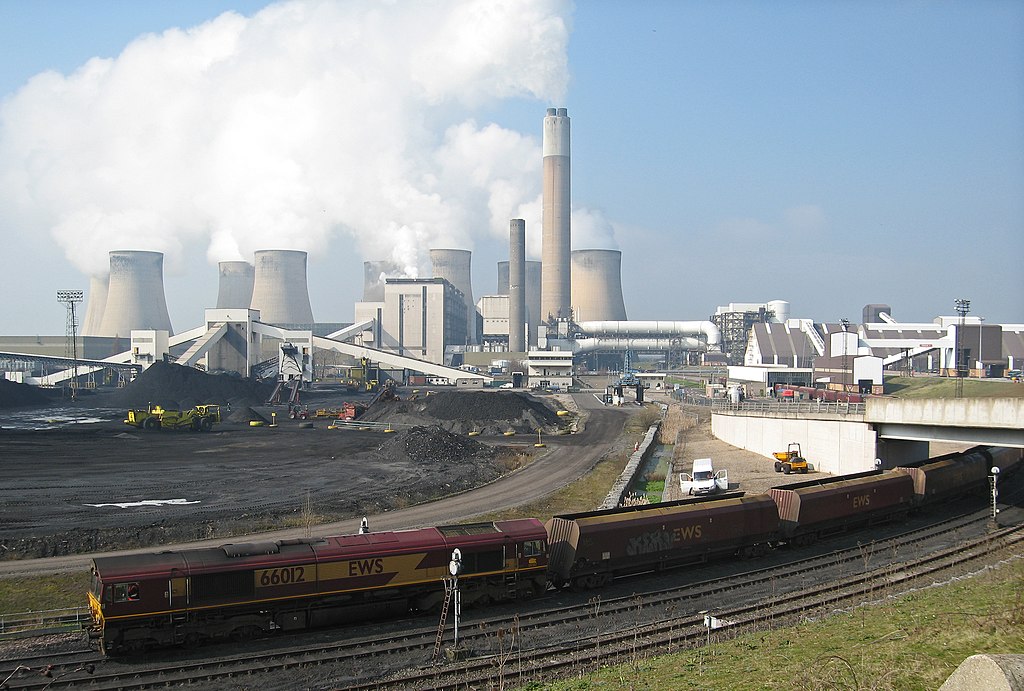Nottinghamshire, England —(Map)
The United Kingdom (UK) said goodbye to coal-powered electricity on Monday when the last coal-fired power plant in the country closed down. The closing of the Ratcliffe-on-Soar Power Station marks the end of a 142-year history of coal-powered electricity in Great Britain.
Matt Webb, who works for a UK research group focused on climate change, said, “The birthplace of coal power is turning its back on coal forever.”
England was the first country to begin burning coal in power plants. In 1882, the world’s first coal-burning power plant was built in London, England. Soon, coal was being used to power factories around the world. Before long, coal became the most popular fuel for creating electricity.

(Source: [Public domain], via Wikimedia Commons.)
Coal and the Climate Crisis
Coal is a fossil fuel. When fossil fuels are burned, they release carbon dioxide and other dangerous gases into the air. Over time, these gases have caused the Earth’s temperature to rise. This warming has led to the climate crisis, which is driving many current problems, including more severe heat waves, wildfires, and storms.
Coal isn’t just any old fossil fuel; it’s the dirtiest of fossil fuels. And the UK has long depended on coal for energy. Roughly 40 years ago, coal provided 80% of the UK’s electricity. That number has been going down steadily. In 2012, coal provided 40% of the UK’s electricity. In 2023, it provided less than 2%.
As coal power has become less important, other sources of energy have grown. Wind and solar power have become much cheaper, and are now the main sources of electricity in the UK. Other sources of electricity, like gas and nuclear power, have also helped replace coal.

(Source: MaltaGC [CC BY-SA 4.0], via Wikimedia Commons.)
The Ratcliffe-on-Soar Power Station was built in 1967. It’s been burning coal for more than 50 years. It’s now owned by a company called Uniper. But over the last few years, the factory has been slowly shutting down.
The UK government has been working for years to cut down on coal-powered electricity. The UK was the first country to set a deadline for ending coal power. The original goal was to end coal power by 2025. Later, the deadline was moved up to 2024.
Monday’s closing marks a big change for England. “This will be the first time since 1882 that coal has not powered Great Britain,” said Michael Lewis, who leads Uniper.
😕
This image has not been loaded because of your cookie choices. To view the content, you can accept 'Non-necessary' cookies.
The UK was the first country to set a deadline to end coal power. Monday’s closing marks a big change. “This will be the first time since 1882 that coal has not powered Great Britain,” said Michael Lewis, who leads Uniper. Above, the Ratcliffe-on-Soar power station a few days before it closed.
Many of the workers at the plant have found new jobs. But Uniper says that over 100 workers will remain at the plant to help shut it down completely.
Many people in the UK are happy to see coal power go. They believe that ending coal power is an important step in the fight against climate change. Some people are encouraging the country to go farther, and get rid of other fossil fuels, like natural gas. The UK government has said it wants to get all of its electricity from renewable sources by 2030.
Britain’s move is an important one. But it doesn’t mean that the world is done using coal. In fact, global coal use hit a record high in 2023. China and India, the countries with the world’s largest populations, are also the two largest users of coal. Together, they use over half the world’s coal. But experts believe that even in these countries, renewable energy will replace coal power soon.
😕
This map has not been loaded because of your cookie choices. To view the content, you can accept 'Non-necessary' cookies.
